Revolutionary Moments in Sports

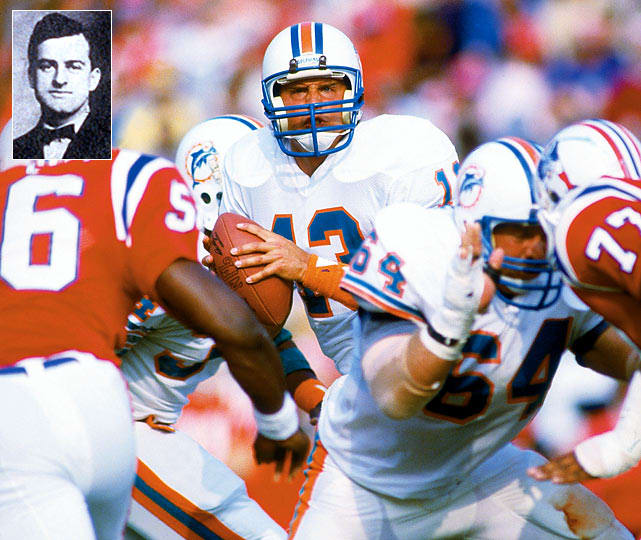
Dan Marino owes a tip of the hat to Eddie Cochens (inset) for his NFL single season-record of 5,084 passing yards in 1984. You see, Cochems is known as the "Father of the Forward Pass," dating to 1906, when the St. Louis University head football coach had his players attempt a forward pass in the first game of that season. In that game, St. Louis' Bradbury Robinson threw a 20-yard touchdown pass to Jack Schneider. Cochems' innovation on the football field has even been compared to what the Wright brothers meant to aviation.
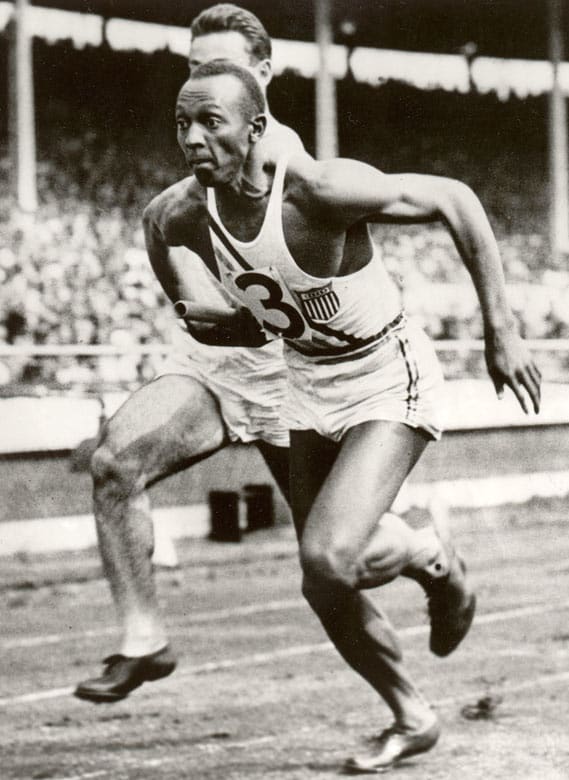
Adolf Hitler wanted to use the 1936 Olympics in Berlin as a showcase for Nazi Germany and the racial inferiority of African-Americans among ethnic groups. Instead, American track and field star Jesse Owens stole the show, winning four gold medals on Hitler's home turf.
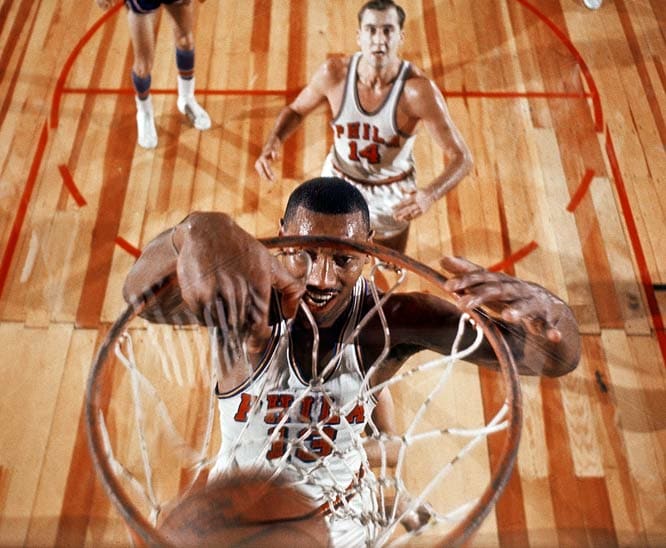
Wilt Chamberlain's dominance in pro basketball forced the NBA to make several rule changes. To slow Wilt's incredible individual power, the league widened the lane and instituted offensive goaltending. The NBA also revised its rules on free throw shooting to prevent players from landing over the free throw line. Prior to this change, Wilt would jump from behind the line and drop the ball in the hoop with ease.
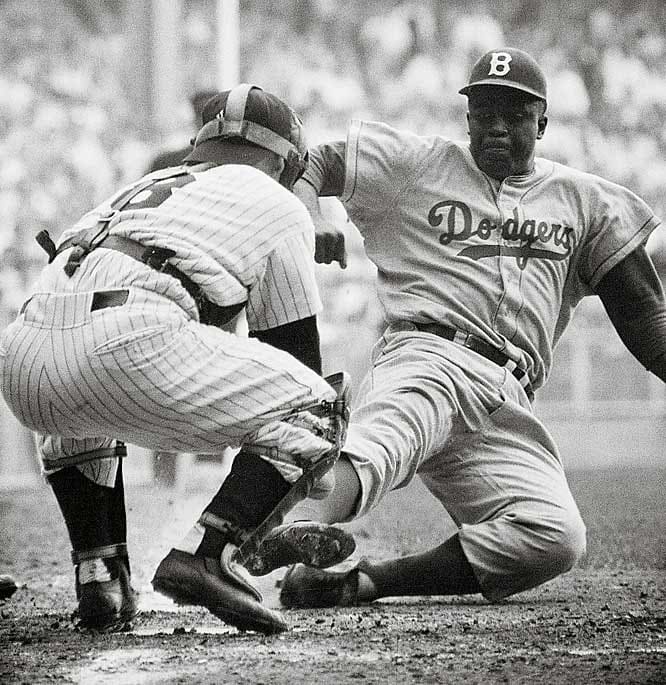
Jackie Robinson became the first African-American in Major League Baseball player when he debuted with the Brooklyn Dodgers in 1947, thus helping to bring an end to racial segregation in sports. Prior to Robinson's success with the Dodgers, black players were forced to play in the Negro Leagues. His courage and success in the majors had a long-lasting cultural impact, and the MLB honors him every season with Jackie Robinson day, a league-wide celebration.

In a tennis match billed as "The Battle of the Sexes," Billie Jean King faced off against Bobby Riggs, an ex-No. 1 player and star of men's tennis. Riggs claimed that women's tennis was inferior to men's, and that even well past his prime (at age 55) he could beat any women's player willing to play him. King won the match 6-4, 6-3, 6-3, making a statement for all female athletes.
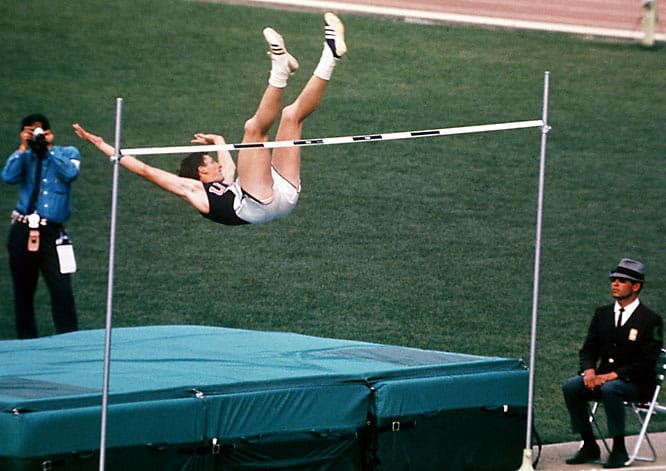
The first high jumper to jump head first over the bar, the American used the "Fosbury flop" to win gold in the 1968 Olympics. His technique captivated the audience, and became the dominant high jumping technique.

During the late 1980s, the Edmonton Oilers dominated the NHL in four-on-four situations. In order to stop Wayne Gretzky and his teammates from taking advantage of the open ice after offsetting penalties, the league changed the rules on minor penalties, forcing teams to continue at full strength in such situations. The alteration was dubbed the "Gretzky Rule."
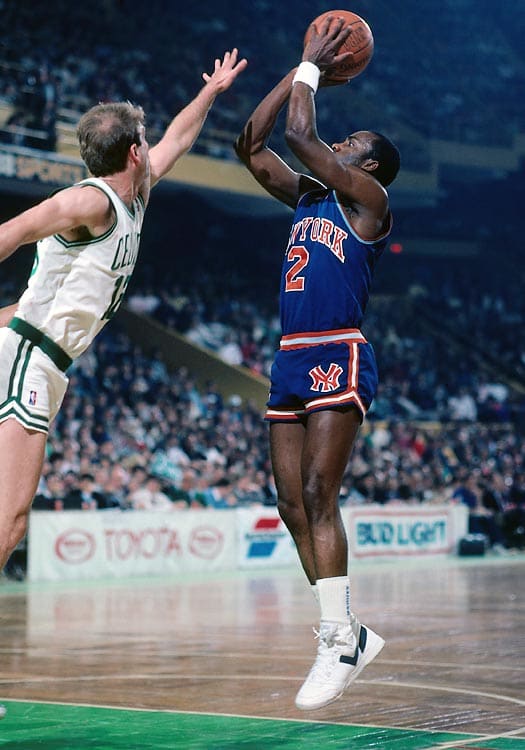
With just .01 seconds left on the clock in a 1990 regular season tilt against the Chicago Bulls, New York's Trent Tucker canned a desperation shot off an inbounds pass, giving the Knicks the win. The game was protested by the Bulls and led to an NBA rule change after the 1989-1990 season, indicating that no regular shot can be taken from the court if the ball is put into play with less than three-tenths of a second remaining on the game clock.
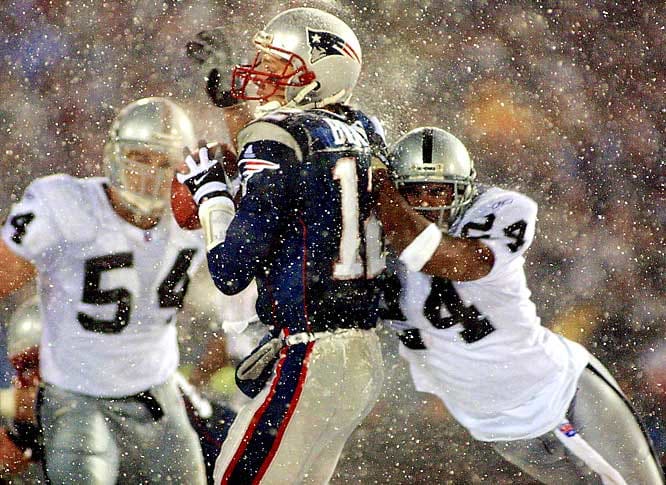
While he may not have intended to, Tom Brady revolutionized the NFL in one controversial play near the end of a 2002 NFL divisional playoff game between the Patriots and Raiders. Brady dropped back to pass, and just as he began his throwing motion, had the ball knocked out of his hands, seemingly a fumble that gave the Raiders the victory. But officials reviewed the play and ruled that Brady brought the ball to his body as part of his throwing motion, thus coining the "tuck rule" and igniting a league-wide debate.

New Jersey Devils' goaltender Martin Brodeur is widely considered one of the most skilled players at his position in history. On the heels of a lockout, the NHL instituted a new rule preventing goalies from playing the puck behind the goal line, except within a designated area directly behind the net. The rule change was seen by many around the league as a direct hit to Brodeur, perhaps the game's best puck-handling netminder, leading to the rule being sarcastically called "The Brodeur Rule."
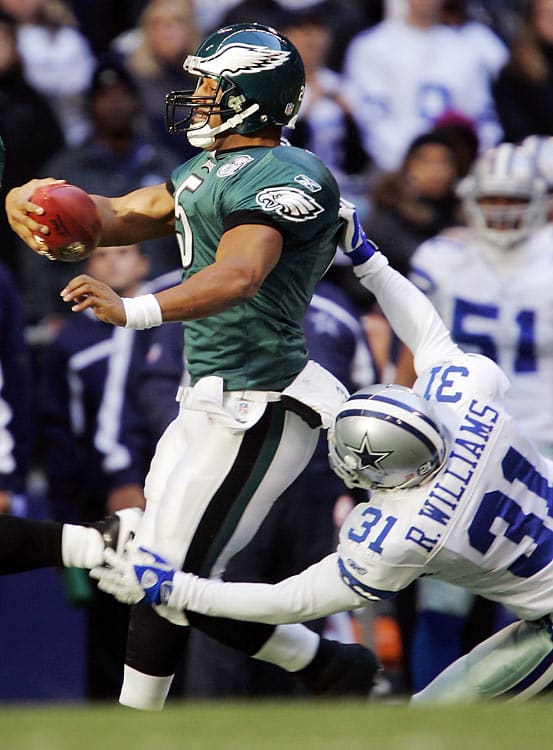
During the 2004 NFL season, NFL officials claimed horse-collar tackles were responsible for six major injuries. The top culprit of such tackling was former Dallas safety Roy Williams, who accounted for four of those injuries, including broken legs for Eagles players Terrell Owens and Donovan McNabb. The league soon after outlawed horse-collar tackles, which occur when a defender drags a player down by the inside-back of his shoulder pads and yanks him to the ground.

Few athletes have beaten cancer and returned to peak condition. Even fewer have returned to the pinnacle of their sport. Lance Armstrong won the Tour de France a record seven consecutive times -- all after surviving testicular cancer. Armstrong is the only cyclist to win the Tour seven times, and his story has made him an icon around the world.
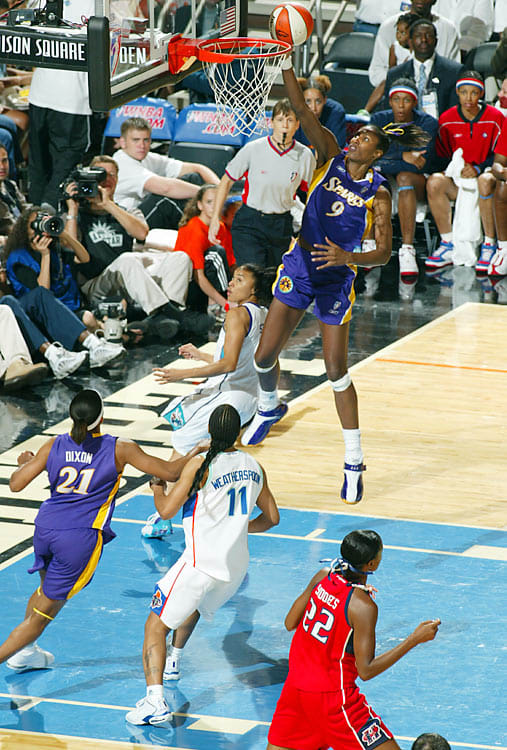
Considered a pioneer of the WNBA, Lisa Leslie became the first woman to dunk in a professional basketball game in 2003, when she threw down an open-court jam for the Los Angeles Sparks. The 6-foot-5 USC product won three WNBA MVP awards and four Olympic gold medals, but might be best remembered for being the first female player to throw one down on a fastbreak.
